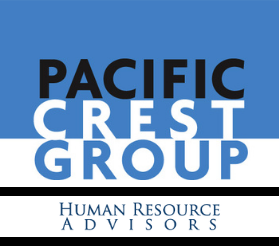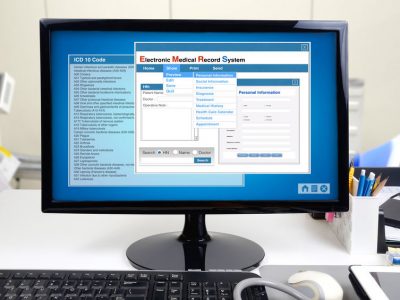General HR For Supervisors
$1,399.00
Description
Active Shooter On-Site: What Every Employee Should Do
When it comes to workplace shootings, there are measures you can take to not only limit the damage but also to save precious lives both before and during these traumatic incidents. Because most incidents are over within minutes, you must be prepared to react to the situation with speed. During this session, we’ll talk about how you, as an employee, should react to and prepare for an active shooter in your workplace.
ADA—What Supervisors Need to Know
This online employment course will help supervisors identify the purpose of the Americans with Disabilities Act (ADA), define “disability” correctly, make reasonable accommodations, handle job interviews and post-offer discussions properly, deal appropriately with leaves of absence and reinstatement, and avoid discrimination based on disability.
Attendance Management—What Supervisors Need to Know
Excessive absenteeism and lateness are serious problems that disrupt operations and negatively affect productivity, quality, and customer service. The objective of this online employment training course is to help managers and supervisors manage attendance effectively. At the end of the training session supervisors will be able to recognize the serious problems created by absenteeism and lateness, identify causes of attendance problems, understand the requirements of our attendance policy, control absenteeism and lateness in your department, and encourage punctuality and good attendance.
Basic First Aid for Medical Emergencies
The main purpose of this session is to familiarize you with basic first-aid procedures. By the time this session is over, you will be able to recognize the benefits of obtaining first-aid and CPR certification; identify proper procedures for a variety of medical emergencies; assist in administering first aid when a coworker is injured; and do no further harm.
Coaching for Superior Employee Performance: Techniques for Supervisors
Coaches play a very important role in the success of a sports team. They develop and motivate players. They work hard to bring out the best in each player and to unify their players into a winning team. Coaching in the workplace has basically the same purpose and involves similar techniques. This session covers effective techniques you can use every day to coach your employees to higher levels of performance, which means greater success for you, your employees, and your department.
Conducting Effective Performance Appraisals
This online performance appraisal training course will help provide managers and supervisors with the basic tools you need to conduct effective performance appraisals. At the end of the training session, you will be able to identify the importance and benefits of performance appraisals, assess and prepare necessary documentation, set motivational performance goals, plan for effective appraisal interviews, conduct fair and beneficial appraisals, and avoid discrimination charges.
Disaster Planning—What Supervisors Need to Know
This online disaster planning training course will help teach supervisors and safety managers to recognize the types of workplace disasters they may face, understand the requirements of the emergency response plan, satisfy employee training requirements, and carry out emergency response duties effectively while at work.
Diversity Fundamentals for Supervisors
Creating a welcoming and diverse workplace where all employees feel empowered and supported in their career goals is the best way to attract quality employees—and the best way to keep them. But HR’s hiring and diversity initiatives will be for naught if supervisors don’t know how to manage a diverse group of employees. This course covers best practices for dealing with a diverse workforce for supervisors. By the end of the course, you will be able to identify how we are diverse; understand the challenges and opportunities of workplace diversity; avoid legal problems; and follow company policy.
Drug & Alcohol Testing: What Supervisors Need to Know
Substance abuse in the workplace threatens safety and costs businesses billions of dollars every year. Drug testing programs can help minimize these costs. Frontline supervisors play a key role in drug testing programs by identifying substance abuse and impairment on the job. By the end of the training, you will be able to identify the situations when drug and alcohol testing may be used, recognize the signs and symptoms of substance abuse and intoxication on the job, determine when a drug test may be needed based on reasonable suspicion, assess an incident to determine whether a post-accident drug test is necessary, avoid using drug and alcohol testing as a form of discipline or retaliation against employees, and fulfill your responsibilities under the drug and alcohol testing program in a manner that protects safety while treating all employees with respect.
Effective Meetings: How-to for Supervisors
All managers and supervisors must deal with meetings, either as a leader of a meeting or as a participant. The main objective of this session is to help managers and supervisors use meetings effectively to accomplish important goals. By the time this session is over, trainees should be able to:
- Plan meetings to achieve the best results;
- Conduct meetings efficiently; and
- Participate more effectively in other people’s meetings.
Emergency Action & Fire Prevention
This online safety training course will teach employees to understand workplace hazards that lead to an emergency and how to respond quickly and efficiently to an emergency situation. Also covered in this training course is how to evacuate an area in an emergency, protect others from fire and other hazards, prevent fires, and respond to fires and spills while at work.
Employment Law for Supervisors—What You Should & Shouldn’t Do
The main objective of this session is to provide basic guidelines for compliance with important federal employment laws. By the time this session is over, you should be able to recognize that your job is directly affected by a variety of important employment laws, identify the requirements of these laws, use your knowledge to assist in compliance, and interact fairly and correctly with employees.
Essential HR—For Those Who Have Recently Assumed HR Responsibilities
The main objective of this session is to introduce you to your new responsibilities as an HR specialist and to help you learn more about your job and the organizations. By the time this session is over, you will be able to understand HR priorities, learn more about the organization, identify the requirements of employments laws and workplace policy, make ethical decisions, and perform job responsibilities successfully.
Exit Routes—Supervisors
This online safety training course is designed for plant managers, supervisors, and other employees designated as emergency evacuation coordinators who need to understand the process for preparing a facility for the safe evacuation of employees. By the end of the training session, participants will be able to set up and maintain exit routes, implement the requirements of the facility Emergency Action Plan, recognize alarm signals, and, implement evacuation procedures.
Generational Diversity
The main objective of this session is to help you better understand generational diversity so that you can supervise all your employees more effectively. By the time the session is over, you will be able to define generational diversity; identify the different generations in the workforce; understand differences among the generations that can affect the workplace; appreciate the impact of generational diversity in communication, feedback, teamwork, motivation, training, and development; and use knowledge of generational diversity to improve supervision of all employees.
Grounds for Termination—What Managers & Supervisors Need to Know
The main objective of this online employment training course is to teach managers and supervisors the legal grounds for termination. By the time this session is over, supervisors will be able to identify the employment laws that affect termination, recognize legitimate reasons for terminating employees, and prevent wrongful discharge and discrimination lawsuits.
Handling Employee Complaints
The main objective of this session is to help you handle employee complaints successfully so that you and your employees can get past the problems that lead to complaints and get on with your work. By the time this session is over, you should be able to acknowledge employee complaints promptly and effectively, investigate complaints thoroughly and make fair decisions, decide when help is required to resolve a complaint, and avoid pitfalls that could cause complaints to escalate into larger problems.
HIPAA—Your Obligations Under the Privacy Rule
This session will guide you through a variety of topics which will help you understand HIPAA’s Privacy Policy. By the time the session is over, you should be able to understand the purpose of HIPAA’s Privacy Rule, the basic requirements of the rule, covered entities and business associates, and what, when, and how personal health information is protected.
Hiring Legally
It’s hard to think of any supervisory function more important than hiring. Just one ill-advised question or comment during an interview can bring untold harm to your company. Supervisors must be well-versed on topics such as protected classes, illegal discrimination, privacy, and a variety of laws. Learn more with the online training course Hiring Legally.
How to Conduct New Employee Orientation
The main objective of this course is to help you plan and conduct effective employee orientations. By the time the course is over, you should be able to recognize the benefits and goals of new employee orientation; assume a leadership role in the process; determine the issues to be covered; and plan and execute successful orientations.
How to Explain the 401(k) to Your Employees
Gain a solid understanding of the 401(k) plan’s features, benefits, and rules so that you can explain these issues to your employees and answer their questions about the plan. By the time the session is over, you will be able to identify benefits of participating in a 401(k); understand investment options; explain the plan’s rules; answer questions; and help employees make informed choices.
How to Manage Challenging Employees
Supervising other people is never easy, but some employees make it particularly difficult. Challenging employees can try a manager’s patience and drain a lot of time and energy. To turn things around takes skillful management and patience. The main objective of this online employment training course is to teach supervisors and managers how to manage challenging employees more effectively. By the time the course is over, you should be able to identify challenges associated with supervising difficult employees, manage your own feelings effectively, create a positive work environment for all, and respond positively to challenging employees and treat them fairly.
How to Prevent & Respond to Bullying
This session helps trainees understand why workplace bullying is a problem, how to recognize it, what motivates bullying behavior, common characteristics of bullies, steps that can help prevent bullying at work, and what to do if the employee is bullied or witnesses bullying.
Interviewing Skills for Supervisors
When a hiring manager makes good hiring decisions, everyone in the organization benefits. Likewise, when a poor hiring decision is made, everyone suffers. This online interview training course will teach supervisors and hiring managers how to conduct more effective interviews. At the end of this course, supervisors will be able to recognize legal and policy issues related to interviewing, identify styles and types of interviews, plan an effective interview strategy, develop good interview questions, conduct successful interviews, and take precautions to prevent discrimination.
Leadership Skills: What New Managers & Supervisors Need to Know
The main objective of this session is to discuss the important supervisory and managerial topic of leadership and explain how you can become a more effective leader. By the time this session is over, you should be able to identify the qualities of effective leaders, understand different leadership styles, build credibility and trust, use leadership techniques to ensure success, lead teams effectively, and lead employees skillfully in challenging times of change.
Measuring Job Performance—What Supervisors Need to Know
This training presentation will help provide you with the basic tools you need to conduct effective performance appraisals. At the end of the training session, you will be able to identify the importance and benefits of performance appraisals, assess and prepare necessary documentation, set motivational performance goals, plan for effective appraisal interviews, conduct fair and beneficial appraisals, and avoid discrimination charges.
NLRA & Unions—What Supervisors Need to Know
Are your supervisors aware of the key provisions of the National Labor Relations Act (NLRA) and the influence of unions within the workplace? If not, they could be setting you up for an expensive misstep. This course will train them on how to identify the basic features and prohibitions of the NLRA, distinguish the rights of employers and employees under the Act, recognize the influence of unions in the workplace, and understand how the NLRA and union contracts may affect interactions with employees.
Office Ergonomics Training
Despite reports that the number of work-related musculoskeletal disorders (MSDs) has declined in recent years because of widespread awareness and implementation of effective preventive measures, ergonomics remains a significant workplace safety and health issue. The main objective of this online office ergonomics training course is to cover the topic of office ergonomics from hazards to precautions so that employees can avoid developing work-related MSDs. By the time the session is over, trainees should be able to define ergonomics and MSDs, identify ergonomic risk factors, recognize MSD symptoms, set up a workstation to minimize stress and strain, and perform tasks safely to avoid musculoskeletal injuries and illnesses. The benefits to you, the employer, are numerous, from lower healthcare costs to increased employee productivity
Office Hazards—What Supervisors Need to Know
The main objective of this session is to review office hazards and the safety precautions you need to take to help your workers prevent accidents and injuries. By the time this session is over, you should be able to recognize office hazards, know what to do in emergencies, take proper precautions to avoid accidents, reduce ergonomic risk factors, use proper lifting techniques, and manage stress effectively.
Pandemic Flu—How to Prevent & Respond
The main objective of this session is to make you aware of the risks of flu pandemics, the potential problems we could all face should we be hit with a pandemic, and the precautions you would need to take to keep yourself and your family safe. By the time the session is over, you should be able to understand what a pandemic is, recognize the risks, identify flu symptoms, prevent the spread of infection, prepare for and deal with a pandemic at work and at home, and know what to do if you get sick.
Preventing Sexual Harassment: A Guide for Supervisors (Non-CA)
Not only is sexual harassment illegal, but it also has many detrimental effects on the workplace and workforce. Our workplace also has a formal policy that prohibits sexual harassment in the workplace—a policy supervisors are responsible for enforcing. But beyond laws and policies, sexual harassment is very damaging to the workplace and work environment. After taking this course, supervisors should be able to recognize, prevent, and respond to sexual harassment.
Recordkeeping & Notice Requirements
We’ll solve this puzzle of federal requirements by focusing on a few specific goals. We’ll begin this session with an introduction highlighting the importance of records and notices and commenting on retention, storage, and destruction of records. Next, we will review the recordkeeping requirements of key employment laws so that you will be familiar with the basic rules. Then, we will discuss notice requirements so that you will be aware of what notices need to be posted and how to post them in compliance with the laws.
Recordkeeping—Injury & Illness
This online recordkeeping training course is recommended for employees and supervisors required to maintain U.S. Occupational Safety and Health Administration (OSHA) illness and injury recordkeeping forms and those who need to know about the recordkeeping requirements. By the end of this training session, employees and supervisors will understand which employers are affected by recordkeeping standards, appropriate recordkeeping forms, how to reporting to the government, employee rights regarding recordkeeping, and injury and illness recording criteria.
Reducing Turnover & Increasing Retention
The objective of this online employment training course is to understand the reasons for turnover and to discuss strategies to reduce turnover and increase retention. At the end of the training session, you will be able to identify the costs of excessive turnover, calculate and analyze your department’s turnover rate, determine causes of turnover among your employees, understand what your employees want from their jobs, and develop an effective turnover reduction strategy
Sexual Harassment in the Digital Age
This course is included with our comprehensive HR training packages. Learn more
Almost everyone has some sort of online footprint, and your employees’ could affect your business. Furthermore, social media and other electronic communications exponentially expand the opportunities for workplace sexual harassment. By the time the session is over, employees should be able to recount types of online conduct that constitute sexual harassment; avoid improper online communications; understand why actions taken with personal devices or even off duty are covered by workplace rules; know their rights and limitation on those rights; recognize that harassment comes in many shapes and forms; and act to prevent and respond to harassment.
Sexual Harassment: Draw the Line
Sexual harassment is not simply a knowledge problem…it’s a behavior problem—one that is pervasive in the modern workplace. This course focuses on employees’ responsibilities relative to preventing and dealing with sexual harassment in their workplace. By the end of the course, employees, supervisors and managers should be able to recognize sexual harassment in the workplace, understand their responsibility to report it, and what they can do to prevent it from happening.
Strategies for Legally Avoiding Unions
The main objective of this session is to help you avoid unions if you choose to do so. By the time the session is over, you will be able to understand employee union-organizing rights; identify reasons employees join unions; identify reasons employees reject unions; recognize signs of a union-organizing campaign; and take legal and effective action to avoid unionization in your workplace.
Stress Management
A little bit of stress can keep us on our toes and give us the adrenaline we need to get through tough situations. But when stress becomes persistent or excessive, it can create problems—both at work and at home. And even worse—it can take a toll on your physical and mental health. During this session we’ll learn about what causes stress, how much is too much, and lots of things you can do to make it more manageable for you.
Teambuilding for Supervisors
This training presentation will teach you techniques for building more effective work teams. At the end of the training session, you will be able to recognize the value of team efforts, identify the characteristics of an effective team, build commitment and cooperation among team members, and use teams effectively to achieve goals.
Understanding COBRA/HIPAA for Supervisors
The main objective of this session is to give supervisors an overview of COBRA and HIPAA and train them to understand the effects of the two laws, understand an employee’s continuation rights when terminated, recognize a qualifying event under COBRA, know the length of continuation coverage, help keep your company compliant with healthcare information privacy requirements, make sure healthcare information is secure, and inform employees of their rights.
Violence in the Workplace: How to Prevent & Defuse for Supervisors
This online violence in the workplace training course will help managers and supervisors identify the causes of workplace violence, spot the signs of potential violence, follow required security procedures, respond effectively to violent acts, and recognize and respond to terrorist threats.
Workers’ Compensation—What Supervisors Need to Know
It is important for managers and supervisors to understand how the organization’s workers’ compensation program works so that they can help injured employees get prompt and proper care and ease the transition back to work when employees recover. Management plays an important role in helping the organization keep down workers’ comp costs and prevent workplace injuries and illness. This online workers’ compensation training course will teach supervisors and managers to be able to recognize the purpose and benefits of workers’ compensation, complete reports, and help workers file claims, maintain contact with employees on leave and ease their return to work, and help prevent workplace accidents to keep worker’s comp costs down.
Workplace Ethics for Supervisors
This training session on business ethics for supervisors explores ethical issues that affect your job and your employees. The objective of this training session is to help ensure that as an organization and as individuals we act ethically in all matters related to our business. At the end of the training session trainees will be able to:
- Appreciate the importance of ethical conduct on the job;
- Understand the requirements of the law and company policy;
- Identify ethical problems in the workplace;
- Make ethical decisions; and
- Recognize and carry out ethical responsibilities.
Workplace Harassment—What Supervisors Need to Know
The main objective of this online workplace harassment training course is to teach managers and supervisors the nature of harassment in the workplace, how you can help prevent it, and what to do if, despite our best efforts, it occurs in our organization. This online training course will teach supervisors what harassment is and why it is a problem, all about company policy against harassment, the procedures for dealing with harassment, how to investigate incidents and determine whether harassment has occurred and the actions you need to take to stop harassment and correct its effects.
Workplace Privacy—What Supervisors Need to Know
Supervisors need to know how to stay on solid legal ground when dealing with private information on their employees. Privacy is an area that does not have one clear-cut set of standards from one major federal law, but various federal, state, and local laws do govern how employers treat employee information.













































